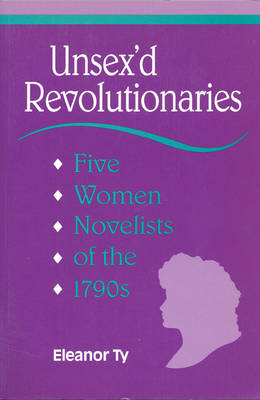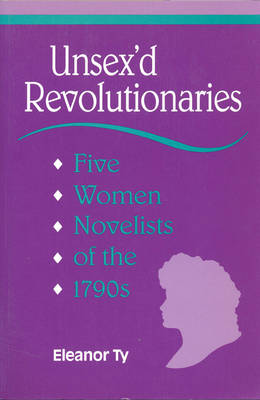
- Afhalen na 1 uur in een winkel met voorraad
- Gratis thuislevering in België vanaf € 30
- Ruim aanbod met 7 miljoen producten
- Afhalen na 1 uur in een winkel met voorraad
- Gratis thuislevering in België vanaf € 30
- Ruim aanbod met 7 miljoen producten
Omschrijving
Women had been writing long before the French Revolution, but the reactionary character of the 1790s infused their work with a public importance and an urgency. The decade was one of intense argument and reflection on the role of women in society. Eleanor Ty studies the ways in which five women writers of the 1790s politicized the domestic or sentimental novel in response to oppression and exclusion. Influenced by radical post-revolution thinkers, Mary Wollstonecraft, Mary Hays, Helen Maria Williams, Elizabeth Inchbald, and Charlotte Smith wrote fiction that questioned existing social, economic, legal and cultural practices as they related to women. In particular, they dealt with historically specific gender issues such as female education, the rights and 'wrongs' of woman, and the duties of a wife.
Using historical and feminist psycho-linguistic studies as a base, Ty explores some of the complexities encountered in the writings of these five women. Through their challenge to Edmund Burke's patriarchal ideas, they discovered strategies of writing based on the maternal or female aesthetic.
For these 'unsex'd revolutionaries, ' sentimental or domestic fiction was not just about courtship, love, and romance. Their writings interrogate the structures of society, and criticize and make relevant the connections between the personal and the political, the domestic and the public sphere.
Specificaties
Betrokkenen
- Auteur(s):
- Uitgeverij:
Inhoud
- Aantal bladzijden:
- 189
- Taal:
- Engels
- Reeks:
Eigenschappen
- Productcode (EAN):
- 9780802077745
- Verschijningsdatum:
- 4/08/1993
- Uitvoering:
- Paperback
- Formaat:
- Trade paperback (VS)
- Afmetingen:
- 153 mm x 228 mm
- Gewicht:
- 322 g

Alleen bij Standaard Boekhandel
Beoordelingen
We publiceren alleen reviews die voldoen aan de voorwaarden voor reviews. Bekijk onze voorwaarden voor reviews.











